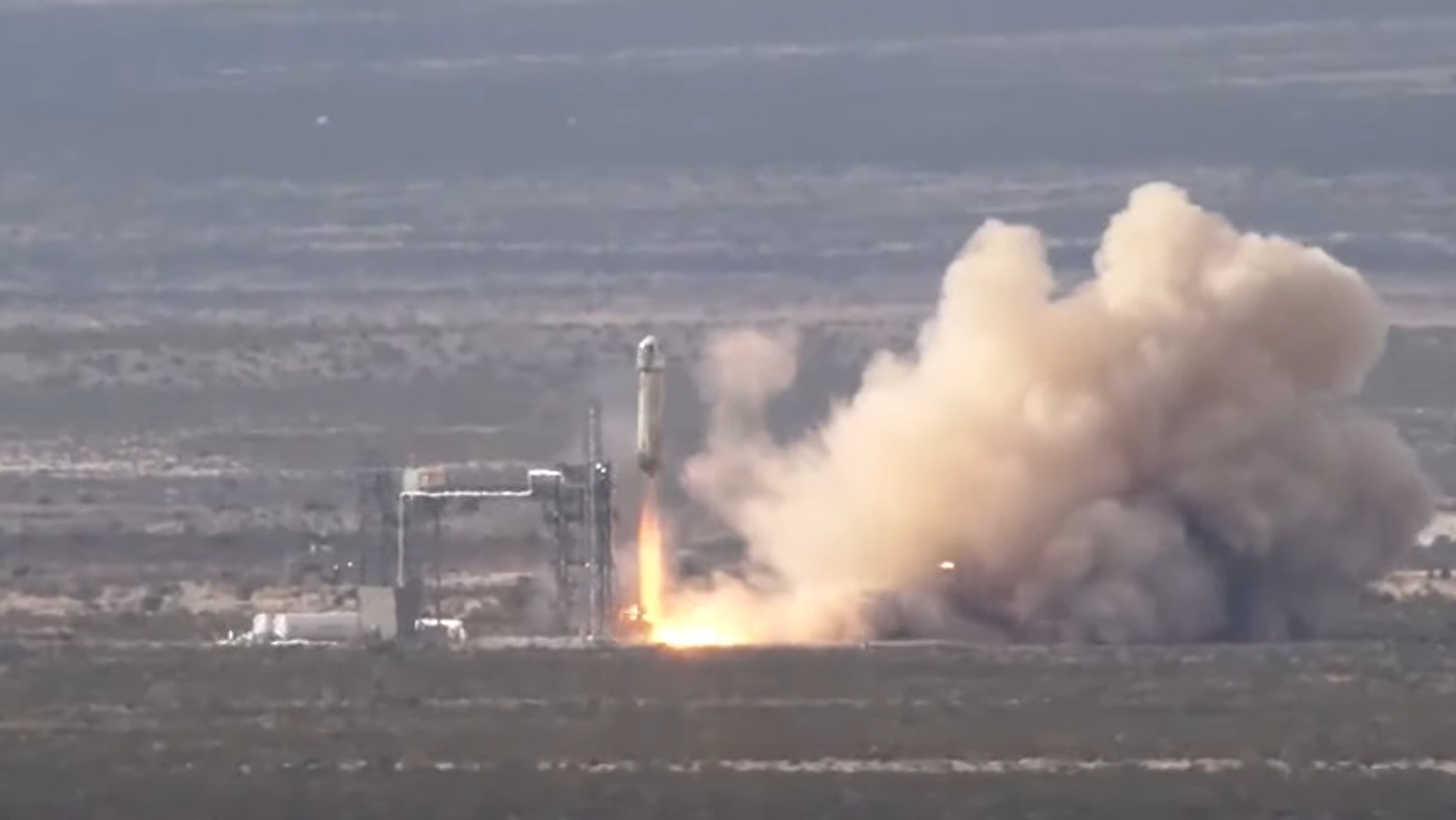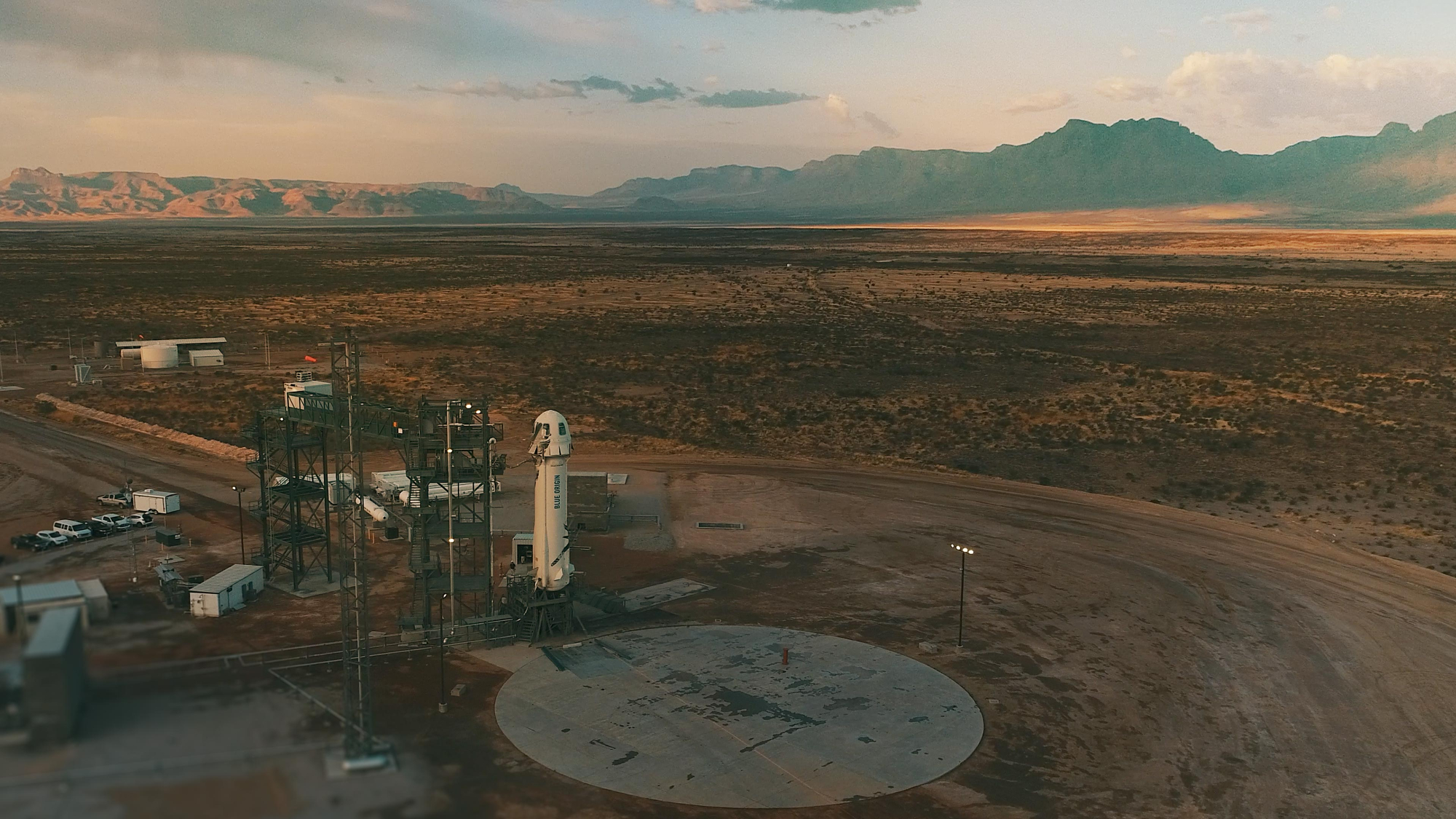
Blue Origin is back in action after a 15-month hold on launches.
Blue Origin successfully launched its first mission in more than 15 months on Tuesday (Dec. 19) after a series of delays, with an uncrewed manifest of NASA scientific payloads making it to space.
Blue Origin's New Shepard suborbital vehicle lifted off from the company's West Texas site on Tuesday around 11:44 a.m. EST (1644 GMT) after brief holds on launch day. (Blue Origin also tried to launch the mission on Monday (Dec. 18), but scrubbed the attempt due to a "ground system issue" at its Launch Site One pad.)
The first stage of the rocket touched down nearby its launching site, as planned, and the spacecraft descended to Earth under parachutes in a livestream from Blue Origin. New Shepard is designed for both tourists and payloads, but the next flight with humans has not yet been announced.
Related: Blue Origin says it knows what caused its New Shepard rocket launch to fail

Like the September 2022 flight, today's mission — known as NS-24, because it will be the 24th overall liftoff for New Shepard — was uncrewed. It carried 33 research payloads, more than half of them "developed and flown with support from NASA," Blue Origin wrote in a mission description.
"Others come from K-12 schools, universities, and STEAM-focused organizations," they added. (STEAM stands for "science, technology, engineering, art and mathematics.")
Today's flight will also tote 38,000 postcards for Club for the Future, a nonprofit founded by Blue Origin that aims to get young people interested in space science and exploration.

While Blue Origin has not yet released its first launch date with humans on board, it is getting ready to fly a wider variety of customers. Launch commentators pointed out an elevator added to the launch tower, in a collaboration with accessibility company AstroAccess. (The company's founder, Dylan Taylor, was a Blue Origin customer himself on NS-19 on Dec. 11, 2021.)
"We have added an elevator; accessibility is really important here at Blue," launch commentator Erica Wagner said on the livestream.
Blue Origin's main competitor for space tourism, Virgin Galactic, has flown several missions in recent months. But Virgin is expected to pause its own monthly flight pace soon to upgrade its fleet. Once the upgrade is finished, Virgin may fly as frequently as once per month.







